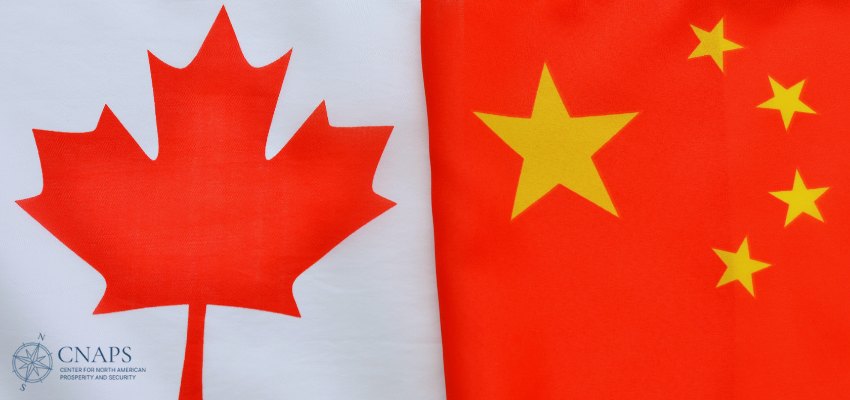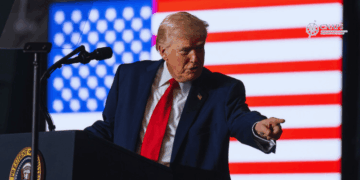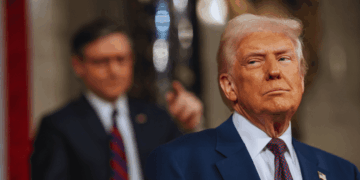This article originally appeared in the Federal Newswire.
By Jamie Tronnes, June 24, 2024
Canada has been rocked by reports detailing the extent of Chinese interference across its democratic institutions. China’s capacity to influence Canadian politics and to infiltrate the political elite presents a stark warning: foreign interference is a very real threat and China will take advantage of unwary Western nations. Americans have every reason to be concerned that their neighbor to the North, a Five Eyes intelligence-sharing ally, is compromised.
Canada’s Public Inquiry into Foreign Interference or “Hogue Commission,” after the judge who presided over the inquiry, has unearthed a web of malign activities orchestrated by Chinese operatives. The commission’s findings highlight a multifaceted campaign aimed at influencing Canadian politics, media, and public opinion. These efforts include covert funding of political campaigns, pay for play in media, disinformation campaigns targeting voices critical of China, and attempts to manipulate policy in favor of Chinese interests.
Additionally, a recent, heavily redacted report from Canada’s National Security and Intelligence Committee of Parliamentarians (NSICOP) included shocking revelations about the depth of elite capture in Canadian political institutions. It outlines that China’s activities are not isolated incidents but part of a strategic, long-term effort to shape Canadian policies and public opinion.
While both reports are eye-raising, the most damning revelation is that an unknown number of Canadian legislators have “wittingly” participated in foreign interference. In one case study, a former Canadian MP is alleged to have had a relationship with a foreign intelligence agent, reported privileged information to the same foreign power, and arranged to meet with a separate foreign intelligence official while abroad. That an MP participated in such treasonous behavior without charges has shaken the political establishment.
The PRC has found ways to exploit faults in the Canadian democratic landscape. Unlike the US, Canada’s primaries are managed by political parties. In the case of the Liberal Party of Canada, any person who is: a permanent resident of Canada, over the age of 14, can prove residency in the constituency, and who has purchased a membership (which costs about eleven US dollars) can vote in the primary.
A 2019 nomination primary is cited as a “textbook case” of foreign interference. The Chinese consulate in Toronto threatened Chinese students with the loss of their student visas if they did not vote for the PRC’s preferred candidate, Han Dong. The students were given Liberal party memberships, false proofs of address, and transportation to vote.
The Canadian Security Intelligence Service (CSIS) sought to brief Prime Minister Justin Trudeau on the matter. Despite their concerns, Trudeau allowed Dong to remain as a candidate, claiming that he did not think the intelligence was credible enough to reverse a “democratic” process.
Dong told the Hogue inquiry that he did not notice any evidence of foreign interference and claims he is innocent of wrongdoing. Dong resigned from the Liberal caucus over allegations that he had willingly advised Chinese operatives not to release Canadians unlawfully held hostage in China by the PRC.
Both reports also discuss the PRC targeting family members of those opposed to Beijing’s policies with disinformation campaigns and direct threats. Among the many political candidates targeted, the PRC was “attempting to make an example” of what happens when you go against the party line by targeting the family of Conservative MP Michael Chong after he proposed a motion critical of China’s treatment of the Uighur people. Conservative MP Kenney Chiu, the sponsor of a bill in 2020 to bring about a Foreign Influence Registry in Canada, was the subject of a coordinated disinformation campaign during the 2021 election and subsequently lost his seat.
In the wake of these reports, the Canadian House of Commons has recently passed Bill C-70, legislation that creates a foreign agents list and seeks to bite into malign interference with some teeth. America should watch to see if it goes far enough.
The Canadian experience serves as a cautionary tale. The strategies outlined in the Hogue Commission and NSICOP report are not unique to Canada; they are part of a toolkit used by authoritarian regimes to undermine democratic institutions globally.
Canada and the United States must adopt more robust measures to protect our institutions. The United States can look to the PRC activities in Canada to learn and develop countermeasures, such as better training and regular intelligence briefings for staff and elected officials of all levels. US officials should also be a vanguard against PRC interference in Five Eyes’ partners by demanding that counterparts take threats seriously and impose real consequences on malicious actors when their operations are brought to light.
While Canada has a long fight ahead if it is to be free from foreign influence, America should learn from Canada’s failures now. Chinese interference is not an abstract or distant threat.
Jamie Tronnes is the Executive Director of the Center for North American Prosperity and Security.








